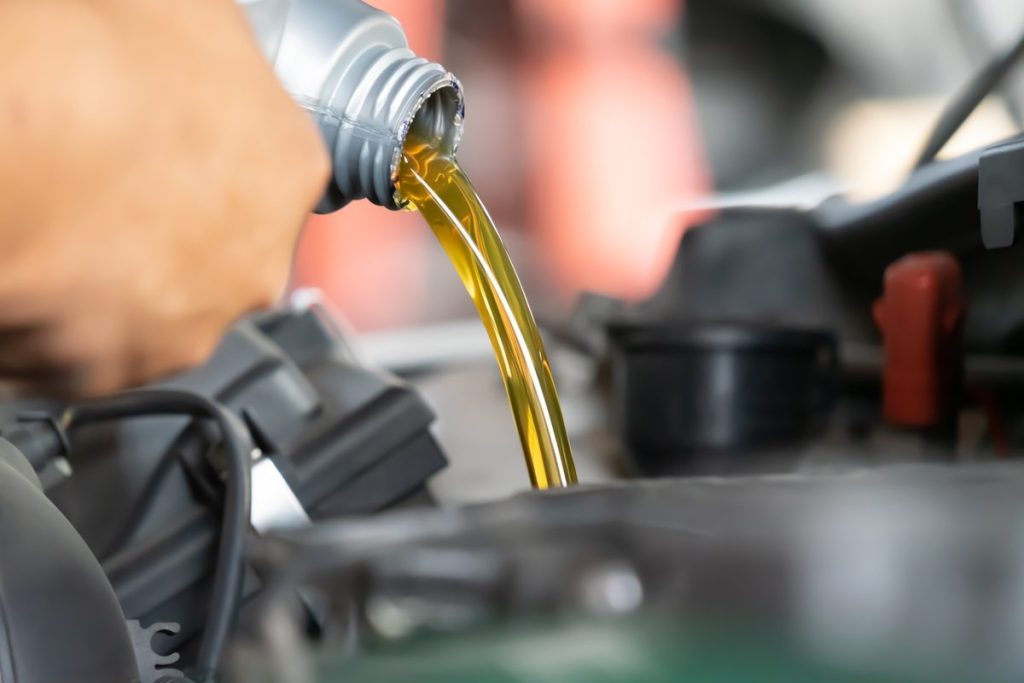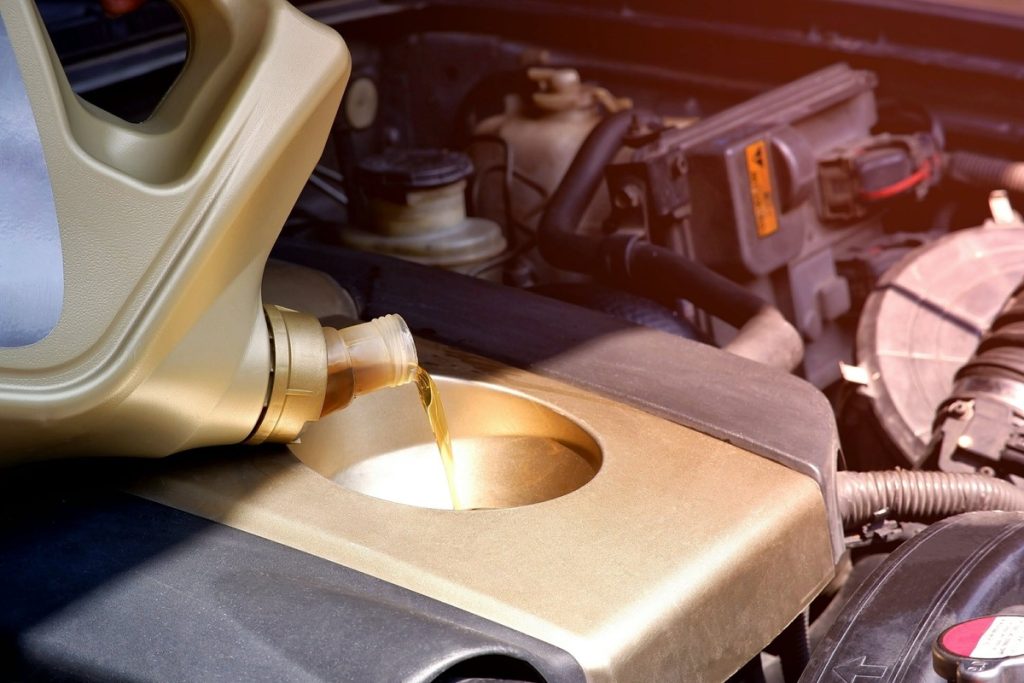There are an abundance of safety measures, maintenance tips and general guidelines to maintaining your car, but having the right engine oil is definitely up there in terms of importance.
Cars require oil to function properly, and choosing the right type of oil for your engine is crucial to ensuring your vehicle’s longevity and performance.
With so many different options available on the market, it can be challenging to know which one you need. In this article, we will guide you to the right oil for your car, explore the different types of oil available, and cover some fundamental questions and concerns surrounding engine oils. Oil change is a fundamental service that we provide, so do not hesitate to get in touch whenever you need one.

What oil should I use in my car?
If you want to quickly find out which oil is needed for your car, we would recommend looking into the car’s manual. It usually provides you with recommendations and a list of oil types that your car is compatible with.
For your typical petrol and diesel-powered cars you would generally use a mineral oil or petroleum-based oil that has a viscosity grade (an oil rating index) of either 5w-30 or 10w-30.
Oils with low viscosity are thin and have superior flow characteristics that safeguard the engine’s internal components at low temperatures. High viscosity, on the other hand, are thick lubricants that are usually more effective at protecting motors at high temperatures.
Do different car types use different oils?
Yes, different car types and models require different types of oils. Unfortunately there is no one-solution formula. Petrol and diesel cars typically use conventional motor oil, which is derived from petroleum. However, there are synthetic motor oils available that can also be used in these engines.
Electric cars, on the other hand, usually don’t have a traditional internal combustion engine so they wouldn’t require engine oil. However, they may still need other types of lubricants, such as transmission and brake fluid, which can vary based on the specific make and model.
Viscosity index
The viscosity index is a measurement of how an oil’s viscosity changes with temperature. Viscosity refers to a fluid’s resistance to flow or its internal friction. In short, it’s a measure of how thick or thin a fluid is, and how easily it can flow.
The viscosity index is an essential grading system that determines a lubricant’s ability to function in a variety of temperature conditions. The viscosity of an oil is a gauge of its resistance to movement, and it varies with temperature. As temperatures rise, the oil thins and becomes less viscous, but if temperature falls, the oil thickens and becomes more viscous.
What kind of engine oils exist?
Conventional Motor Oil:
This is the most common type of engine oil, which is made from petroleum and is generally recommended for use in most cars with low to moderate mileage.
Synthetic Motor Oil:
This type of oil is made from chemical compounds and offers better performance and protection than conventional oil. Synthetic motor oil is engineered to offer superior performance compared to traditional motor oils. It is an optimal choice for high-performance vehicles.
Diesel oils:
Diesel engines require a different type of oil compared to petrol engines as they produce more soot and combustion junk. Even if the viscosity rating is the same, there are many significant differences in oil properties. For example, diesel oils have various cleansing additives that eliminate harmful engine deposits.
Mineral motor oil:
Derived from crude oil, mineral motor oil is a non-synthetic lubricant that is widely used around the world and quite affordable. Unlike synthetic oils, mineral oil is not made from chemicals, but is instead a natural product that is non-toxic and biodegradable.
While it may not offer the same level of performance as synthetic oils, mineral oil remains a reliable and cost-effective option for protecting your car, and keeping your engine running smoothly
Why is engine oil so important?
An engine simply cannot operate without oil because oil lubricates its interior components. When a motor is running, the moving elements produce heat and friction, which can cause metal components to wear out. Oil is used to lubricate these components and reduce friction, thereby reducing harm and attrition. If there wasn’t any oil, the engine would seize, and potentially cause irreparable damage.
Furthermore, oil aids in motor cooling by transferring heat away from moving components. Without oil, an engine’s interior components would grind against each other, produce excessive heat, and eventually seize, resulting in potentially irreparable damage.
Regular oil changes and check ups is a staple to ensuring that a car works well, and lives a long and prosperous life.
If you’re unsure on which engine oil your car needs, get in touch with our technicians today and we will advise you.
